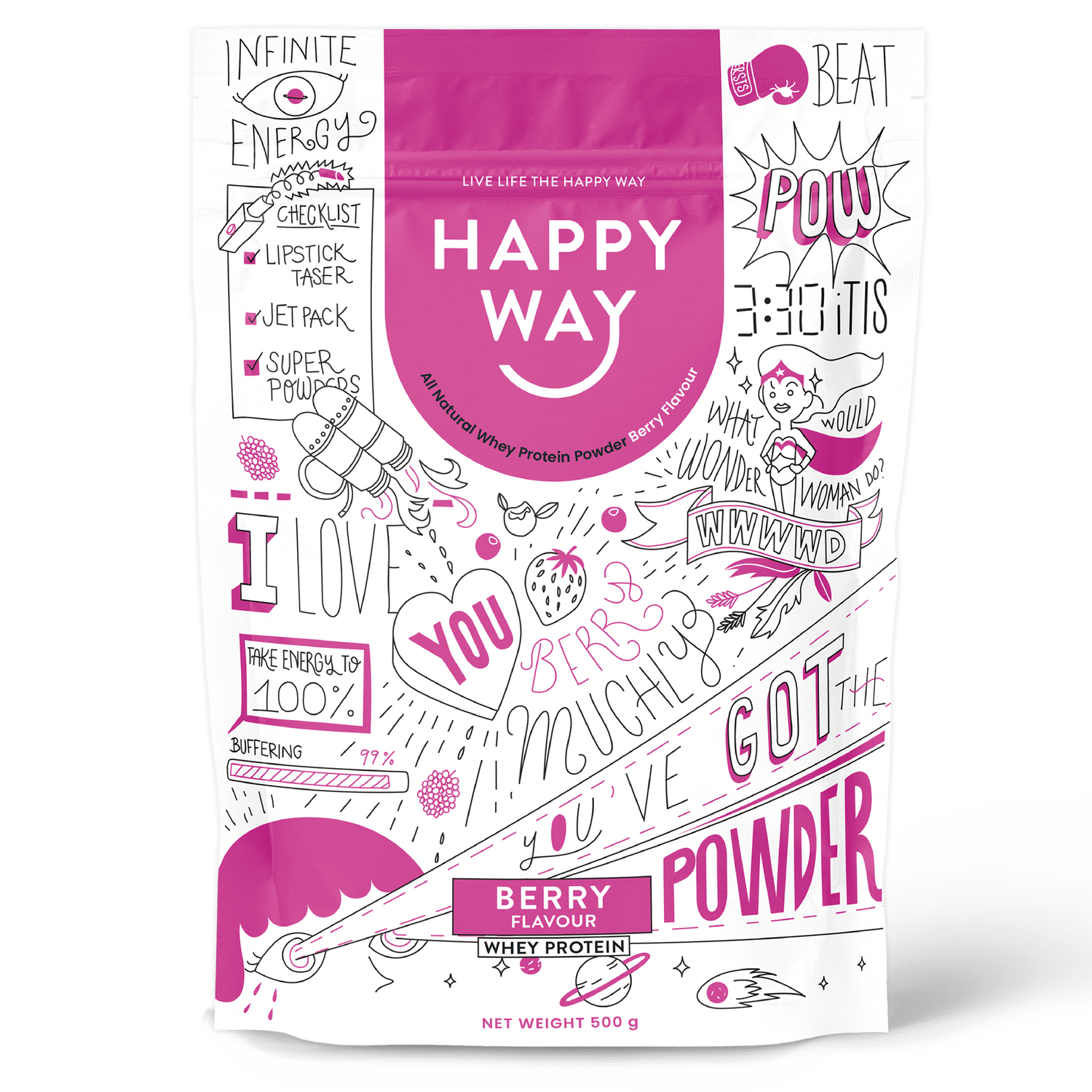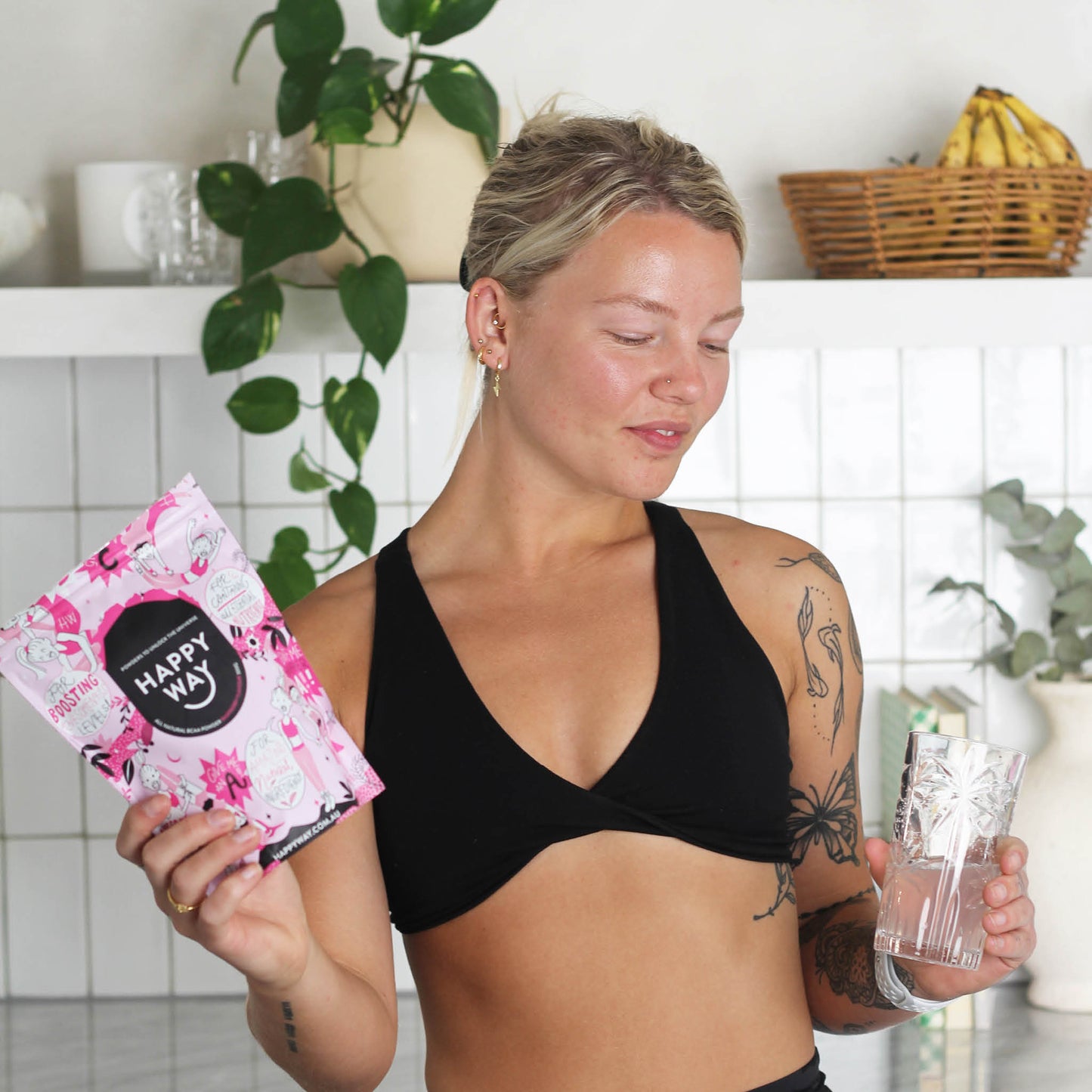When it comes to the world of fitness and wellness, the acronyms and lingo that come along with the journey represent nothing short of going down a rabbit hole. From reps and sets to BCAA’s, the language can take up a world of its own. But within the sea of exercise related jargon is an acronym dreaded more than any other. You know what we’re about to say – DOMS. Known as delayed onset muscle soreness, DOMS is that post workout feeling you get 24 – 72 hours following a training session when you’re trying to walk down a flight of stairs and feel like your legs may give way. Or if we’re really being honest and specific, it’s that dreaded feeling you get when you’re trying to sit on a toilet without wincing in pain.
Now, if your go-to fitness sessions involve a stroll in the park or a meditation class then chances are that you won’t experience extreme muscle soreness. This is because DOMS typically occurs following strenuous workouts where you have increased your reps or weights or have completed exercises you haven’t done before. The soreness results from the break down of muscle protein and small tears in the muscle fibre which can leave you not only feeling uncomfortable but may hinder your fitness progress altogether.
Girls, how many times have you attended an F45 class only to bail after the first session because you couldn’t walk properly in the days that followed? Guilty as charged! The good news is that there are preventative measures one can take to lessen both the intensity and duration of this uncomfortable post workout burn.
Keep Moving
Take your pain for a walk. As tempting as it may be to sit out your aching glutes and abdominal muscles, moving will shorten the duration of your DOMS. This is because moving increases circulation throughout the body allowing blood to carry vital nutrients such as amino acids and oxygen to you muscles. The faster these nutrients are delivered to your muscles the quicker your recovery will be. This means going for a leisurely walk or even hopping onto your exercise bike for a light spin. If you are looking to take your commitment to the next level, why not take a yoga or Pilates class during your off days. This is one of the most effective ways to stretch your muscles and increase your range of movement with a low impact activity.
Hydrate, and then hydrate some more!
A golden rule to doing life right, hydrate then hydrate some more. While drinking 2 litres of water a day is crucial to keeping you on track with your diet, keeping your energy levels up and promoting radiant skin, increasing your water intake is also a key element of minimising your DOMS. A plethora of studies and evidence points to the importance of water in minimising your muscle soreness as it speeds up the process of eliminating toxins from your body. This is especially important post exercise as your muscles break down and release enzymes such as kinase and hydrogen ions which promote muscle soreness. Staying on top of your hydration will help your liver and kidney flush out these toxins quicker.

Stretch it out
How many times have you completed a HITT session only to walk out of your class and head straight for your favourite coffee shop? Now, we’re not here to kill your post workout high, but we are here to reiterate the importance of stretching. Light stretching immediately after working out and in the days that follow helps increase blood flow to your muscles, delivering vital minerals and nutrients needed for muscle repair. Do keep it light however. Stretch out to a point where your muscle feels tight but not excruciatingly painful and hold the stretch for between 5 to 10 seconds.

Drink more coffee
No not a typo. Drinking a cup of coffee before your workout is shown to boost your endurance and also speed up your post recovery process. A study published in the Journal of Strength Training and Conditioning found that bodybuilders who drank one to two shots of coffee prior to their workout not only exhibited increased endurance but also reported to have experienced less severe post-workout soreness when compared to those who didn’t consume coffee.
Take your nutrition seriously
We know that nutrition and fitness go hand in hand, however, when we say take your nutrition seriously we are referring to more than adding a few salads into your repertoire.
When it comes to recovery, the foods and supplements you consume will make the difference between struggling to walk around the office and getting back to the gym in no time. The foods you eat before and after a workout can help speed up the tissue-rebuilding process and can lessen the severity of your DOMS.
As the building block of all tissue, protein is essential for muscle growth and our body’s ability to repair post workout. Helping repair muscle fibres that have been broken down during exercise, the amount of protein you consume following your workout will play a key role in reducing the severity of your soreness and minimising your recovery time.
While the amount of protein one should consume is dependent on exercise frequency, dietary requirements and results wanted, a general rule of thumb is 1.5 to 2 grams of protein per kilogram of body weight to be consumed throughout the day. However, when it comes to your recovery, studies have shown that consuming 20grams of protein for women and 25grams for men following your workout effectively stimulates muscle protein synthesis.
Now take it a step further with BCAA's
When it comes to muscle soreness, this little hard working acronym is set to become your best friend. Branch-chained amino acids have long been used to stimulate muscle protein synthesis following exercise. Made up of three key amino acids, leucine, isoleucine and valine, they account for more than 35% of essential amino acids found in skeletal muscle protein.
Replenishing these amino acids becomes increasingly important post exercise because your skeletal muscles oxidize a greater portion of BCAAs than any other amino acids during exercise. Given that these are essential amino acids, meaning that your body does not produce them naturally, replenishing your stores with food and supplements is key.
A study published in ISRN Nutrition found that females who consumed BCAAs with a glucose supplement following their workout reported on experiencing less severe and less lengthy DOMS than those who didn't . A 10gram scoop of BCAA's mixed with water within 30-60 minutes of completing your session is all that is required to kick start your muscle repair process.
Don’t forget the other key players!
While protein is one of the most important supplements to take for a swift recovery, eating a well balanced diet is key to your success no matter what your fitness goals may be. Anti-inflammatory foods such as blueberries, strawberries, leafy greens and even Manuka honey can all be added to your post-workout smoothie and will work to help minimise the severity of your muscle soreness. Antioxidant rich foods such as turmeric, green tea and Goji berries will help flush out the toxins released by your muscles during exercise, while magnesium rich foods such as whole grains, beans, nuts and avocado will help your muscles relax and will minimise your cramping.
Rely on magnesium
Using magnesium as means of combating muscle soreness has long been recommended by professionals. Aiding the regulation of neuromuscular signals and muscle contractions, magnesium works to help your muscles relax, easing your aches, pains and cramps. While you can take magnesium supplements, one of the quickest ways to deliver the benefits is via an Epsom salt bath. When diluted in warm water, Epsom salt turns into magnesium and is rapidly absorbed directly through the skin. If you needed an excuse to run a bath and escape for half an hour, here it is. Think of it as a necessity rather than an indulgence. You're welcome!

Prioritise Sleep
If you really want to maximise your post-workout recovery time and results then you will need to prioritise spending more time between the sheets. Prolonged periods of poor sleep have been shown to negatively impact on the release of growth hormones, in turn slowing down your muscle recovery process. During your non-REM sleep cycle, which accounts for around 40% of your sleep, your pituitary gland releases a shot of growth hormones, which stimulates tissue repair and growth. A lack of sleep causes a sharp decline in the secretion of this hormone.
According to the SportsLab, seven to nine hours of sleep are optimal if you are looking to change your body composition, increase muscle mass and speed up your recovery process. This was further supported by a study carried out by the Sleep Journal which found that swimmers and sprinters who slept for 10 or more hours a night were found to exhibit better reaction times, higher levels of energy and better moods than those who didn't.














